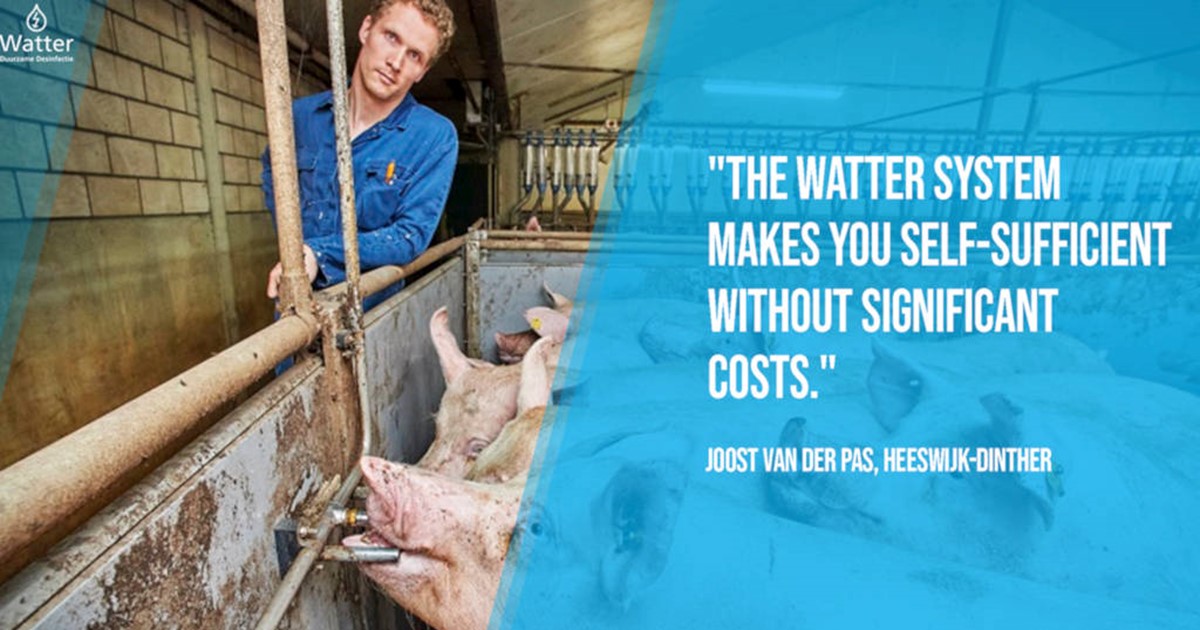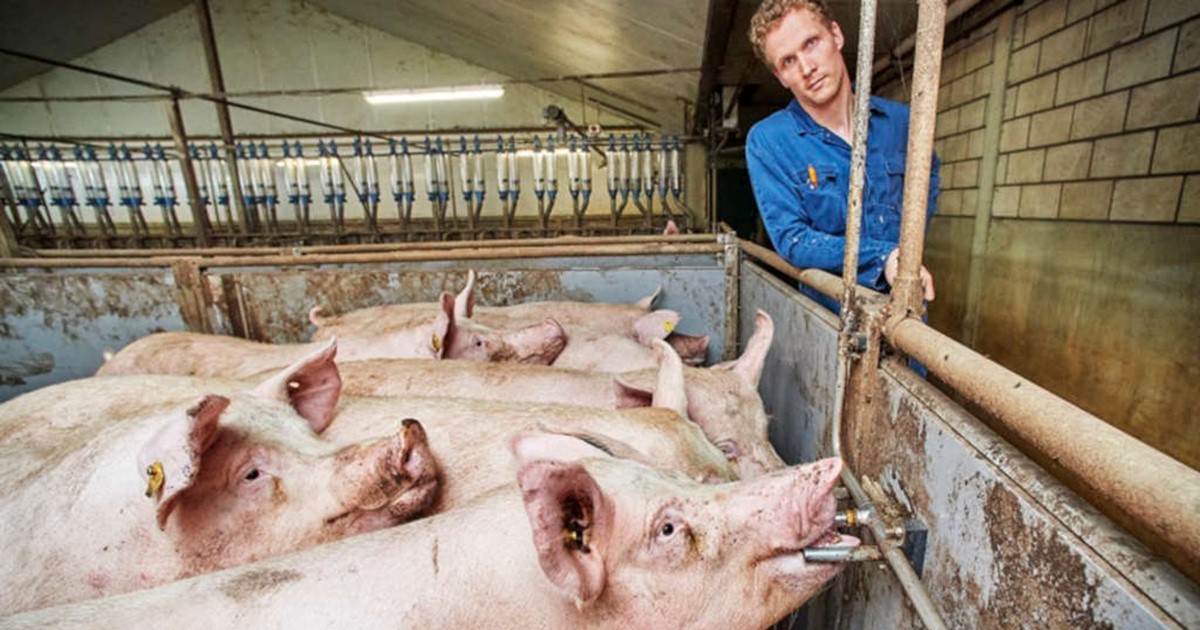Animals like to drink clean water. However, in practice, this turns out to be less evident than what is believed. Pig farmer Joost van de Pas saw improved fertility results in his sows when he started to disinfect the water voor his pigs after the installation of Watter.
Water is the most important nutrient for animals since animals drink a lot of water. A sow, for example, drinks on average more than 20 liters a day. A pleasing side effect is that water is relatively cheap. Still, things tend to go wrong when it comes to water. Pig farmer Joost van der Pas in Heeswijk-Dinther (Noord-Brabant, NL) has a water sample taken periodically. 'In recent years the results were not on par with what I wanted to see. The bacterial count was especially high. This, to me, was the reason to look for possibilities in order to improve the water quality', says Van der Pas. Joost van der Pas has a farm with 600 sows and fattens some of the piglets themselves. A year ago, Joost van der Pas invested in a Watter Disinfection Sollution.
Little work
'The Watter system appealed to me. I heard positive things about the system, and an advantage is that it involves little work. The only thing that I have to do is to fill up on salt in the installation', he explains. 'In the past I have worked with ready-made disinfectants. That's more work and besides, the costs are a lot more than the salts I'm buying now', Joost says. 'The system makes you self-sustainable without having significant costs.'
Produced on sight
Microbiologist Reinoud Homan from Watter sees another advantage: 'Our device produces a disinfectant which ensures clean drinking water down to the watering place. Through further development, we have succeeded in developing the technology needed to make a disinfectant from water and salt, in a device the size of a refrigerator. This is a device you can place anywhere. That is why a lot more stock breeders choose our system in order to give the animals clean drinking water without any chemicals from a jerry can', says the microbiologist.
Direct improvement
Homan concluded that the attention for the quality of the drinking water in stockbreeding often falls short. 'If the water research shows that there is light pollution, that is often considered acceptable. This can be improved. Light pollution does not have to lead to ill animals, but usually means inferior technical results. Suppressing unwelcomed bacterial units will cost an animal a lot of energy.' Pig farmer Van der Pas noticed, when his Watter installation was installed, to the naked eye no difference from the water from the tap in his barn. Even the taste did not change. 'However, the results of the water tests did show an immediate improvement. Van der Pas did not see any major changes in his animals, but he noticed that a larger proportion of the sows were beginning to gain weight as early as four days after weaning. That contributes to better reproduction results and a higher balance per sow.'





